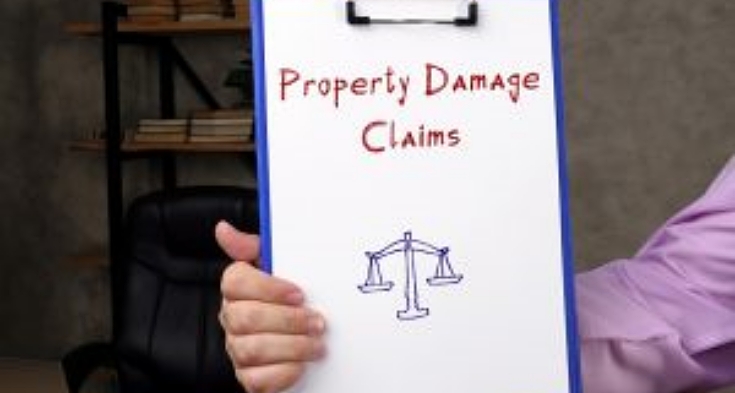
In Florida, healthcare workers operate under strict regulatory oversight. While these rules are designed to protect patients, they can also create serious challenges for professionals with a criminal record. A past mistake, even decades old, can jeopardize a career through disqualification by the Agency for Health Care Administration (AHCA) or disciplinary action by the Florida Department of Health (DOH). The encouraging news is that there are survival strategies. By pursuing AHCA exemptions from disqualification and mounting a strong defense in DOH administrative hearings, healthcare professionals can continue their careers, safeguard their reputations, and protect their futures.
At Elevate Legal Services, PLLC, a Boca Raton law firm, we are dedicated to representing healthcare professionals facing these challenges. We have years of experience defending against DOH violation complaints and navigating the AHCA exemption process. Our attorneys understand the high stakes involved when your career is on the line. Contact us today at 561-770-3335 or email [email protected] to schedule a consultation and learn how we can protect your future.
Navigating the Two Regulatory Tracks
Florida divides healthcare regulation between AHCA and DOH. Knowing the difference between these two agencies is vital. AHCA regulates healthcare facilities and oversees background screenings. If you seek employment in a nursing home, assisted living facility, or home health agency, AHCA determines whether your criminal history disqualifies you. DOH, however, regulates professional licenses. If you are a nurse, physician, or licensed provider, DOH investigates alleged misconduct and determines disciplinary actions.
This division means that healthcare professionals with a criminal record may face two separate challenges. On one track is AHCA disqualification, which blocks you from working in regulated facilities unless you secure an exemption. On the other track is DOH licensure discipline, which threatens your license through investigations and hearings. Both issues can independently end a career, so healthcare workers must pursue a strategy that addresses both simultaneously.
The Role of AHCA Exemptions
Florida law mandates Level 2 background screenings for healthcare workers. These checks reveal criminal records, and certain convictions result in automatic disqualification from working in AHCA-regulated facilities. For many, the only way forward is through an AHCA exemption. An exemption is not guaranteed; it requires a detailed application and proof of rehabilitation by clear and convincing evidence. The process is often complex, and many applicants are denied because they fail to prepare a strong submission.
Eligibility for an exemption depends on several factors. Crimes such as murder, sexual misconduct, and exploitation of children are permanently disqualifying, meaning no exemption can be granted. Other convictions may be eligible once at least three years have passed since completing all sentencing obligations, including probation and restitution. Applicants must also present evidence of rehabilitation, such as stable employment, volunteer service, or letters of recommendation.
The application process involves submitting court records, proof of sentence completion, personal statements, and references. Once the application is submitted, AHCA’s Background Screening Unit reviews it and determines whether to grant the exemption. Because this decision can make or break a career, healthcare professionals benefit greatly from legal guidance to prepare persuasive applications.
Applications are often denied for reasons such as missing documentation, vague personal statements, or insufficient evidence of rehabilitation. Many professionals underestimate the detail and preparation required. At Elevate Legal Services, PLLC, we know what reviewers look for and how to present your case effectively.
DOH Licensure Defense
While AHCA determines facility eligibility, DOH controls professional licensing. If your background check reveals a criminal conviction, DOH may investigate your license. Even if AHCA grants an exemption, DOH can still take action against your license. This creates a dual risk that must be managed carefully.
DOH complaints can stem from criminal convictions, professional misconduct, patient neglect, fraud, or drug-related issues. Once a complaint is filed, DOH launches an investigation. Some cases end with a Consent Order, while others proceed to an administrative hearing. Both outcomes can significantly impact your ability to practice.
If your case proceeds to the Division of Administrative Hearings (DOAH), an administrative law judge will hear evidence and make recommendations. These hearings are formal legal proceedings, and entering them without an experienced lawyer puts your license at serious risk. Potential penalties include fines, probation, suspension, or permanent revocation. In some cases, charges can be dismissed if successfully defended. At Elevate Legal Services, PLLC, we defend healthcare workers in these proceedings, ensuring your voice is heard and your license is protected.
Understanding the Interplay Between AHCA and DOH
One of the most confusing aspects for healthcare professionals is the relationship between AHCA and DOH. Many assume that success with AHCA automatically protects them with DOH, but the two agencies operate independently. You may secure an exemption from AHCA, yet still face DOH sanctions. Conversely, you might retain your DOH license but remain barred from working in AHCA-regulated facilities without an exception. This dual system underscores the need for coordinated legal strategies that address both tracks together.

How Elevate Legal Services, PLLC Supports Healthcare Professionals
At Elevate Legal Services, PLLC, we provide comprehensive assistance to healthcare professionals navigating both AHCA and DOH challenges. Our services include reviewing your criminal history and assessing eligibility, preparing strong exemption applications, representing you in DOH investigations, and coordinating strategies across both regulatory tracks. We know the personal and professional stakes are high, and we are committed to ensuring your career continues.
We offer tailored representation to highlight rehabilitation, prepare persuasive personal statements, and gather compelling evidence. For DOH proceedings, we provide strong advocacy in negotiations and hearings. Our holistic approach ensures that no aspect of your case is overlooked.
Frequently Asked Questions
An AHCA exemption is a special permission that allows healthcare workers with disqualifying records to work in AHCA-regulated facilities. It does not erase the criminal record, but it restores eligibility. AHCA and DOH operate independently, so an exemption does not prevent DOH from disciplining your license. Generally, you must wait three years after completing all sentencing requirements before applying for an exemption. Because DOH hearings are formal legal proceedings, professional legal representation is essential to protect your license.
Protecting Your Career: The Bigger Picture
Florida’s healthcare system depends on thousands of dedicated professionals. A criminal record can create obstacles, but it does not have to end a career. AHCA exemptions and DOH defense are critical survival tools for healthcare workers determined to continue serving patients. Together, they form a two-track system that requires careful navigation.
At Elevate Legal Services, PLLC, we believe in second chances and the vital contributions of healthcare professionals. If you are facing disqualification or a DOH complaint, do not wait. Take proactive steps today to safeguard your future.
Call Elevate Legal Services, PLLC, Today
Your healthcare career is too important to risk. Contact Elevate Legal Services, PLLC, in Boca Raton for experienced legal representation. Call 561-770-3335 or email [email protected] to schedule a confidential consultation. Let us help you navigate the complexities of AHCA exemptions and DOH licensure defense so you can continue making a difference in the lives of your patients.





